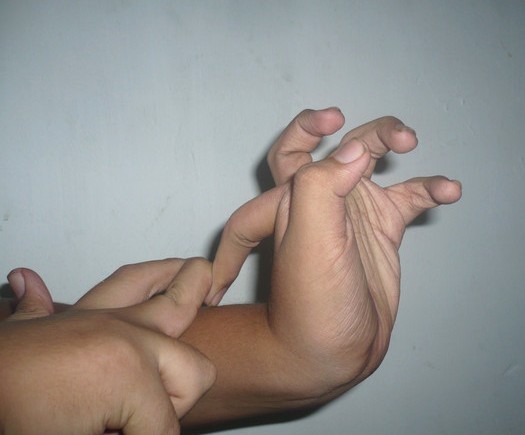|
Adolf Lorenz
Adolf Lorenz (21 April 1854, Vidnava – 12 February 1946, Sankt Andrä-Wördern) was an Austrian orthopedic surgeon. Career He studied medicine at the University of Vienna and subsequently worked as an assistant to surgeon Eduard Albert (1841–1900) in Vienna. In 1901 he was one of the founders of the German Society of Orthopaedic Surgery. He was the father of famed ethologist Konrad Lorenz (1903–1989). Adolf Lorenz is remembered for his work with bone deformities. As a young surgeon during the 1880s, he developed a severe allergy, allergic skin reaction to carbolic acid, a compound that was used extensively in operating rooms. Although the condition prevented him from performing traditional surgical operations, he continued in the medical profession as a "dry surgeon", treating patients without cutting into skin or tissue. Subsequently, he was given the nickname "The Bloodless Surgeon of Vienna". His techniques became known as bloodless surgery, reflecting his noninvasive te ... [...More Info...] [...Related Items...] OR: [Wikipedia] [Google] [Baidu] [Amazon] |
Adolf Lorenz 01
Adolf (also spelt Adolph or Adolphe, Adolfo, and when Latinisation (literature), Latinised Adolphus) is a given name with German language, German origins. The name is a Compound (linguistics), compound derived from the Old High German ''Athalwolf'' (or ''Hadulf''), a composition of ''athal'', or ''adal'', meaning "noble" (or '':wikt:hadu-, had(u)''-, meaning "battle, combat"), and ''wolf''. The name is cognate to the Anglo-Saxons, Anglo-Saxon name ''Æthelwulf'' (also Eadulf or Eadwulf). The name can also be derived from the ancient Germanic elements "Wald" meaning "power", "brightness" and wolf (Waldwulf). Due to its extremely negative associations with the Nazi leader Adolf Hitler, the name has greatly declined in popularity since the end of World War II. Similar names include Lithuanian language, Lithuanian Adolfas and Latvian language, Latvian Ādolfs. The female forms Adolphine (name), Adolphine and Adolpha are far more rare than the male names. Adolphus can also appear as ... [...More Info...] [...Related Items...] OR: [Wikipedia] [Google] [Baidu] [Amazon] |
Abduction (physiology)
Motion, the process of movement, is described using specific anatomical terms. Motion includes movement of organs, joints, limbs, and specific sections of the body. The terminology used describes this motion according to its direction relative to the anatomical position of the body parts involved. Anatomists and others use a unified set of terms to describe most of the movements, although other, more specialized terms are necessary for describing unique movements such as those of the hands, feet, and eyes. In general, motion is classified according to the anatomical plane it occurs in. ''Flexion'' and ''extension'' are examples of ''angular'' motions, in which two axes of a joint are brought closer together or moved further apart. ''Rotational'' motion may occur at other joints, for example the shoulder, and are described as ''internal'' or ''external''. Other terms, such as ''elevation'' and ''depression'', describe movement above or below the horizontal plane. Many anatomical ... [...More Info...] [...Related Items...] OR: [Wikipedia] [Google] [Baidu] [Amazon] |
People From Vidnava
The term "the people" refers to the public or common mass of people of a polity. As such it is a concept of human rights law, international law as well as constitutional law, particularly used for claims of popular sovereignty. In contrast, a people is any plurality of persons considered as a whole. Used in politics and law, the term "a people" refers to the collective or community of an ethnic group or nation. Concepts Legal Chapter One, Article One of the Charter of the United Nations states that "peoples" have the right to self-determination. Though the mere status as peoples and the right to self-determination, as for example in the case of Indigenous peoples (''peoples'', as in all groups of indigenous people, not merely all indigenous persons as in ''indigenous people''), does not automatically provide for independent sovereignty and therefore secession. Indeed, judge Ivor Jennings identified the inherent problems in the right of "peoples" to self-determination, as i ... [...More Info...] [...Related Items...] OR: [Wikipedia] [Google] [Baidu] [Amazon] |
